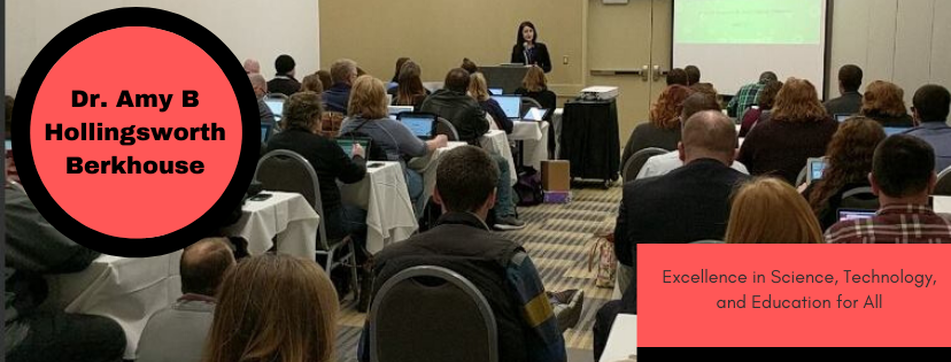The phrase "Underwater basket weaving" is an idiom referring (in a negative way) to supposedly easy and/or worthless college or university courses, and used generally to refer to a perceived decline in educational standards. This term emerged in the 1950's in a letter to the LA Times about the lack of expectations for football players to take difficult courses. It is now used for not just individual courses, but entire "fluff majors." A "Fluff Major" is when a student picks a course of study that is easy, so that they do not have to take a job or be challenged by the "hardness" of the courses. I actually wrote about this phenomenon a few years ago in "Are they up for the challenge? Community College Students' Perceptions of Challenging Classes." What we found (essentially) is that students wanted easy classes if the class was not part of their major (gen ed), and "hard but not too hard" if the class was for their major. What kind of courses would be included in the "hard, but not too hard" category? For many students, this means (unfortunately) the humanities - subjects that study human culture using methods that are primarily critical, speculative, or historical.
The humanities include ancient and modern languages, literature, philosophy, religion, and visual and performing arts such as music and theater. The humanities, which are also sometimes regarded as social sciences, include history, anthropology, area studies, communication studies, cultural studies, law and linguistics. What common factors underlie the humanities? Subjectivity, and lack of math. Note how the social sciences are different than the natural sciences. The natural sciences are empirical - (the record of one's direct observations or experiences) can be analyzed quantitatively or qualitatively. They involve scientific experimentation, and testing.
The first people who took “fluff majors” may have been men in the 1950's looking to avoid the draft. Colleges and universities very quickly set up “easy majors” to accommodate the influx of men looking to avoid going to war. These men might not have entered college otherwise. Setting up a dance program, an acting program, or a writing program is inexpensive for the school. Think about what it takes to offer a writing program, versus what it takes to set up an engineering program (hint – it probably differs by $500,000 or more).
“Fluff majors” have persisted up to today, as there is federal money available (sometimes called “free money for college”) for low-income students to go to college after high school, rather than entering the workforce. “Free money” or easy students loans are attractive options for potential students – if your choice is to take a Walmart or fast food job to support your family, or take $30,000 a year to go to school, which would you choose? Believing that going to college is a way to get an advantage in life – and that is how college is sold to students, as an investment in their future – in that after graduation, they will be able to get a much better job than a low-skilled Walmart job. But if you know that you had trouble with math or science in high school, or believe that these are “the hard majors,” (or any of the other myths, like “women can’t be scientists,” or “women are bad at math” or “African Americans don’t do science”) what do you take? A major that does not involve math - hence, the fluff major, which is "hard, but not too hard."
These so called “laid back degrees” are often appealing. Many times, the jobs that accompany these “easy majors” are desirable – becoming a teacher or a social worker is a noble and a “help people” profession. (Note to all – I am a teacher) Also, these potential college students have experience with these professions – everyone knows a teacher. Students know counselors, social workers, nurses, psychologists, home health aides, EMTs, police officers, or computer support technicians. Students understand these jobs, know people who do these jobs, and want to help others. Unfortunately, these are often the lowest paid career options, and options that lead to a paycheck to paycheck lifestyle. Becoming a dancer, a writer, a musician, or an actor may entice the students’ dreams of becoming famous, or making it big. What they don’t realize is the likelihood of "making it big" is small, and that if they don’t make it big, they may end up working at Starbucks, with student loans to pay back, anyways.
Part of the problem is that the highest paid career options are not the ones that low-income, first generation students are familiar with. A petroleum engineer can make $160,000 a year – and how many of those people do you know? I do not personally know one petroleum engineer. The next highest paid is an actuarial mathematician. I’ve never even heard of that job (and I work at a university!!!)! Here are the top 15 highest-paid majors, from Business Insider –
1. Petroleum Engineering
Staring median salary: $103,000
Mid-career median salary: $160,000
2. Actuarial Mathematics:
Starting median salary: $58,700
Mid-career median salary: $120,0000
3. Nuclear Engineering
Starting median salary: $67,600
Mid-career median salary: $117,000
4. Chemical Engineering
Starting median salary: $68,200
Mid-career median salary: $115,000
5. Aerospace Engineering
Starting median salary: $62,800
Mid-career median salary: $109,000
6. Electrical Engineering
Starting median salary: $64,300
Mid-career median salary: $106,000
7. Computer Engineering
Starting median salary: $65,300
Mid-career median salary: $106,000
8. Computer Science
Starting median salary: $59,800
Mid-career median salary: $102,000
9. Physics
Starting median salary: $53,100
Mid-career median salary: $101,000
10. Mechanical Engineering
Starting median salary: $60,900
Mid-career median salary: $99,700
11. Materials Science and Engineering
Starting median salary: $62,700
Mid-career median salary: $99,500
12. Software Engineering
Starting median salary: $60,500
Mid-career median salary: $99,300
13. Statistics
Starting median salary: $52,500
Mid-career median salary: $98,900
14. Government
Starting median salary: $43,200
Mid-career median salary: $97,100
15. Economics
Starting median salary: $50,100
Mid-career median salary: $96,700
Note that 9 of the 15 positions are engineers. If you are living in a low-income neighborhood, how many of your friends or neighbors will be engineers? Also note that most of these involve math-heavy courses. Math is something that terrifies or befuddles many students. That one barrier – believing math is too hard, or that you can’t do math, or that math isn't fun or rewarding – will keep these students near the bottom of the payscale.
What is the answer to this problem? It seems like a self-perpetuating cycle – students who are low income hate math, and may not have the resources to spend on education, pick “fluff majors,” “easy majors,” or “laid back majors.” After they get the degree, they either cannot find a job, or are forced to take a low-paying job that keeps them living paycheck to paycheck. Students who have college educated parents, who are already wealthy, or already in good schools, and who have the resources to spend on education pick “hard majors,” know people who are employed in the hard majors, and go on to get a hard degree, and remain at the top of the payscale. Again, I don’t have the answer to this problem. How do you convince a person not to take a fluff major? Do we just let the students decide?


 RSS Feed
RSS Feed
